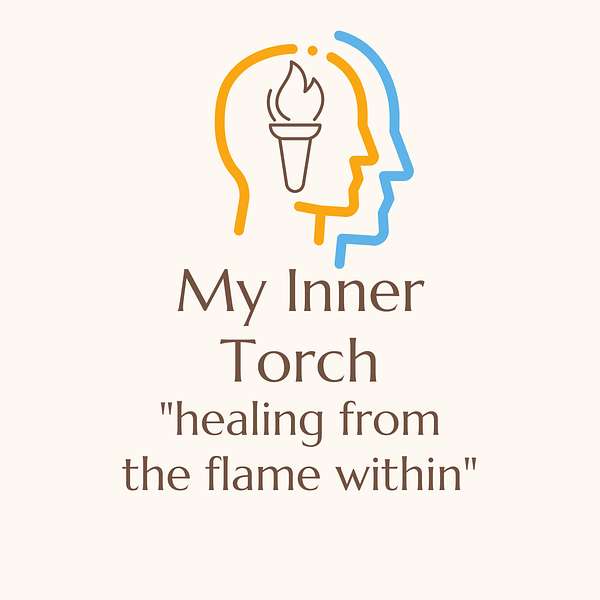
My Inner Torch
My Inner Torch offers direct and personal insight with help for those of us in a relationship with someone who is undiagnosed/diagnosed with a Cluster B Personality Disorder. This is a safe place to come for words of inspiration that draw from my personal experiences and is produced to gain understanding and to find direction as we navigate through the often difficult relationships with those we love who suffer with a Cluster B personality disorder that includes BPD and NPD. PLEASE NOTE: This podcast is NOT for those who suffer with these disorders. This podcast is for survivors of these challenging and difficult relationships.
My Inner Torch
Look Back Listen-January '24 "Living in the Shadow of a Disordered Mind"
🎯 Key Takeaways
Core Points:
I’ve experienced how Cluster B abuse leaves me grieving lost relationships, identities, and futures.
I often blamed myself, feeling trapped in the abuser’s delusional reality.
My healing involved recognizing the abuser’s inability to love and their manipulative tactics.
Self-reflection was crucial for breaking free from the cycle of abuse.
Seeking support and understanding from others aided my healing process.
I learned to prioritize my self-worth and recognize that healthier relationships are possible.
🔍 Summary
The Grief of Cluster B Abuse
In this deeply personal podcast episode, I explore the profound grief I experienced after Cluster B abuse. Drawing from Maria Consiglio’s insightful writing, I delve into the multifaceted nature of this grief. It wasn’t just about losing a relationship, but mourning the idealized connection, the person I thought my abuser was, and the future I had imagined. I grieved the loss of my former self, the person I was before the abuse, and felt deep sadness about who I had become. The grief extended beyond emotional pain to tangible losses – assets, finances, and even beloved pets – revealing the pervasive impact of such a toxic relationship.
Escaping the Shadow of the Abuser
I share my personal journey of a long-term relationship with someone I now recognize as a histrionic, covert narcissist. The disturbing realization of their true nature forced me to question my own judgment and how I allowed myself to be manipulated. I vividly recall the insidious manipulation tactics – the “thought grenades” and “Darvo” behavior (Deny, Attack, Reverse Victim and Offender) – where my abuser constantly shifted blame onto me. Understanding these tactics became crucial in preventing myself from falling into reactive abuse patterns.
The Path to Healing and Self-Discovery
Breaking free from the abuser’s influence was incredibly painful, but absolutely necessary. I learned to stop blaming myself and recognize that their actions reflected their disorder, not my inherent flaws. Through careful self-reflection, I began to take an objective look at my relationship and consider whether I truly deserved such treatment. Rebuilding my self-esteem became a priority, and I started believing in the possibility of finding healthy, reciprocal relationships. By acknowledging my abuser’s fundamental inability to love and understanding that their behavior stemmed from their disorder, I found a path to healing. My journey taught me the immense importance of prioritizing my mental well-being and believing in my own worth.